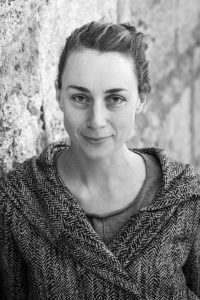Maria Frölich-Kulik

Shortbio
- geb. 1985 in Berlin geboren
- 2004–2011 Architekturstudium an der Bauhaus-Universität Weimar. Diplom bei Prof. Karl-Heinz Schmitz (BUW) und Prof. Alberto Campo Baeza (ETSAM).
- 2006 Tongji-University Shanghai
- 2008–09 Esquela Técnica Superior de Arquitectura de Madrid (ETSAM)
- 2010–2013 Mitarbeit in verschiedenen Architekturbüros in Amsterdam, Weimar und Leipzig.
- Seit 2013 Mitglied der Architektenkammer Thüringen
- Seit 2015 Mitarbeit und Promotion im Forschungsprojekt “Experimentierfeld Dorf: Die Wiederkehr des Dörflichen als Imaginations- Projektions- und Handlungsraum”, gefördert von der Volkswagen-Stiftung. Arbeitstitel Promotion: “Landschaften als Netzräume. Architektonische Leerstellen im Landschaftsgeschehen” bei Jun.-Prof. Dr. Sigrun Langner an der Professur Landschaftsarchitektur und -planung, Bauhaus-Universität Weimar
Contact
Bauhaus-Universtät Weimar
Fakultät Architektur und Urbanistik
Professur Landschaftsarchitektur / -planung
Jun. Prof. Dr.-Ing. Sigrun Langner
Belvederer Allee 5, R 205
D-99423 Weimar
maria.froelich-kulik[at]uni-weimar.de
Landscapes as net spaces. Architectural Voids in Landscape Events.
Humans construct landscape through actions, perceptions, and memories (Lefebvre 1991). In the process, networks of a material, social, and cultural nature emerge. In this sense and in distinction to the Arcadian understanding of landscape, I understand landscape (etymologically: worked land) as network space.
The built environment is the materialized history of this network space. It creates identity and is the starting point for future developments. The narratives of this must be read and understood in order to be able to continue to tell them in the design process. Vacant public buildings, for example, tell of the dwindling importance of a region, especially when it comes to central nodes such as train station buildings.
Following on from current debates about rural, so-called structurally weak regions, the potential of functional revitalization for sustainable regional development will be discussed using the example of vacant train stations and alternative approaches to landscape planning will be tested. The research work is being carried out within the framework of the interdisciplinary research project “Experimentierfeld Dorf” (funded by the Volkswagen Foundation) in close exchange with literary scholars.